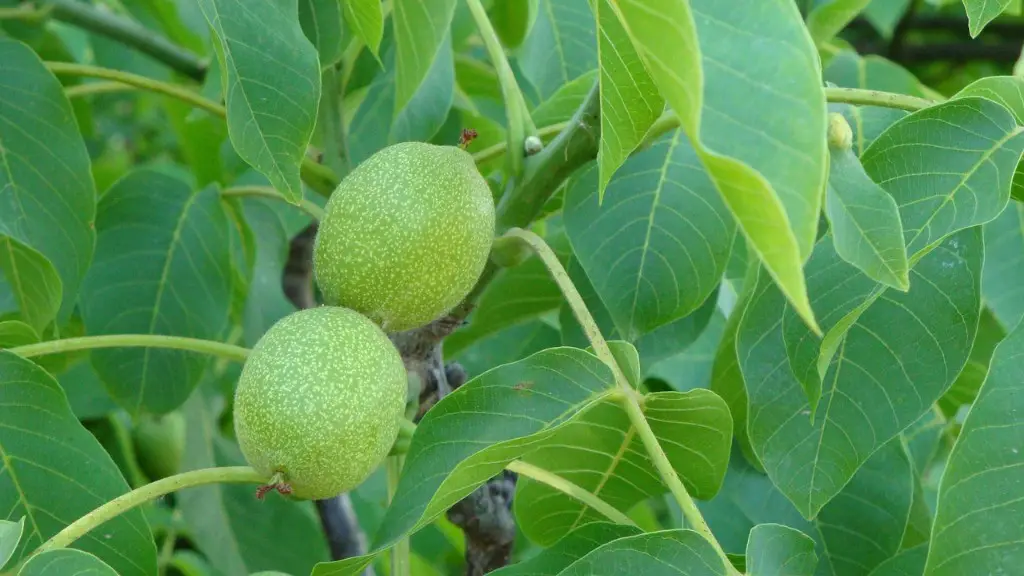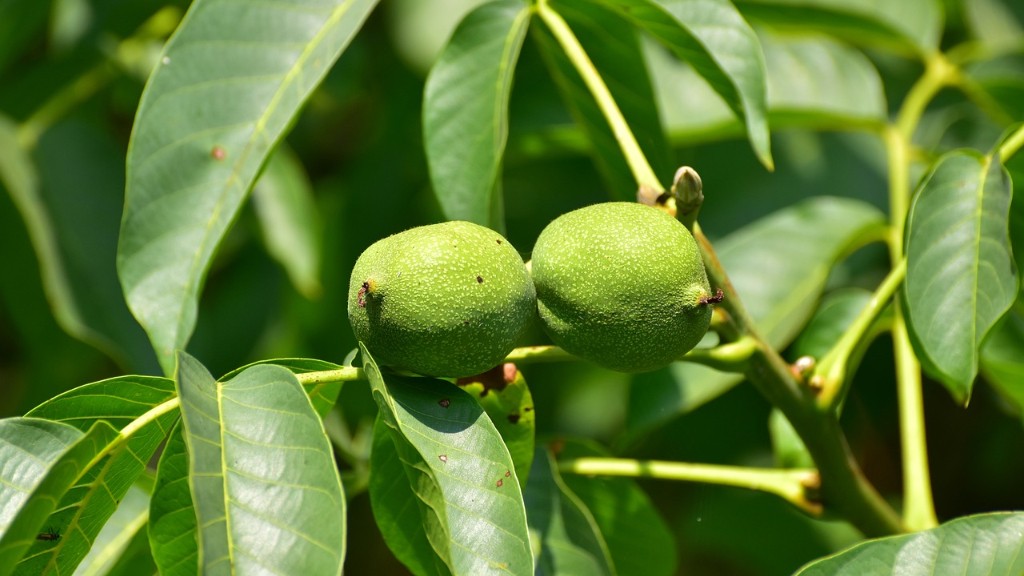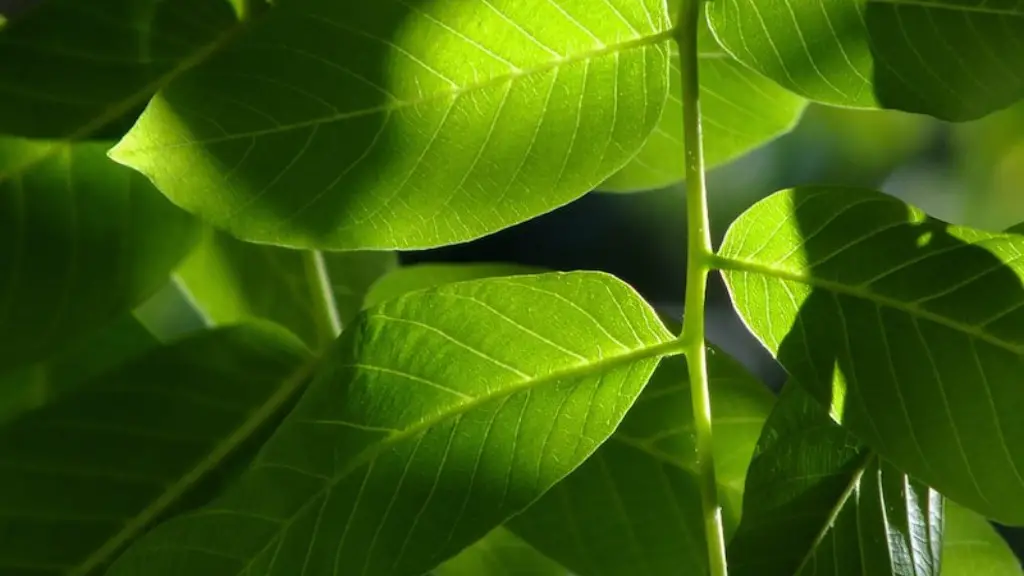Meyer lemons are a relatively new citrus variety and often the preferred choice for people wanting a sweet, juicy lemon. However, a common concern of lemon growers is how long it takes for a Meyer lemon tree to fruit. This can be affected by various factors, such as the climate, soil type, and pruning techniques.
Meyer lemons tend to mature more quickly than other citrus fruits. Under optimal conditions, you may expect your tree to bear fruit within one to three years. Trees grown from seed can take 5-10 years before producing fruit.
The climate plays an important role in how and when a Meyer lemon tree will produce fruit. Mild climates with temperatures between 10-15 degrees Celsius are ideal for citrus fruit production. In cooler climates, the tree will take longer to fruit. Additionally, tropical areas can often experience high humidity, which can cause the lemons to rot or spoil faster.
When planting your Meyer lemon tree, it’s important to select a location that has well-draining soil. Ample drainage encourages thriving root growth, while limiting moisture levels prevents the tree from becoming waterlogged and promoting disease. Fertilizing your tree is also a beneficial practice that can aid in increasing fruit yield.
Finally, pruning your Meyer lemon tree is important in fostering a healthy, productive tree. Pruning helps to encourage growth and regulate the size and shape of the tree, as well as improving nutrient and water transfer to the branches and fruits. It’s best to prune the tree in the early spring and late summer to minimize the stress on the tree and optimize fruit production.
Nutrients and Fertilizing
An important factor in how long it takes for a Meyer lemon tree to fruit is the proper nutrition it receives. Citrus trees generally require regular fertilization to maintain optimal growth. Use a 10-10-10 or 8-8-8 fertilizer to provide essential nutrients like nitrogen, potassium, phosphorous, and other micronutrients.
You can also apply additional fertilizer throughout the season to maintain mineral levels. Manure, compost, or other biodegradable fertilizer should be added to the soil each spring. Make sure the fertilizer is applied to the drip line of the tree, and water the tree afterwards to ensure the fertilizer is properly absorbed.
Meyer lemon trees also need adequate amounts of water to ensure proper growth and fruit-bearing. The soil should be kept consistently moist, however avoid over-watering or excessive drenching. Water the tree in the morning or before nightfall, so that the water has the chance to absorb before the sun rises.
Lastly, Meyer lemon trees like high amounts of sunlight to maximize fruit production. Place the tree in a sunny location away from trees and buildings, as these can create shade and inhibit the growth of your tree.
Proper Sunlight
Meyer lemon trees need adequate sunlight to stimulate growth and increase fruit production. Though the exact amount of sunlight your tree will need depends on the type of tree you’ve planted, citrus trees are typically grown in areas that receive six to eight hours of direct sunlight.
The lemon tree should be placed in a sunny spot that is shielded from wind, as strong winds can be damaging to the leaves and flowers. If you live in areas with extreme temperatures, be sure to shade your tree during the hottest times of day, as this will protect your Meyer lemon tree from heat damage.
Inadequate sunlight or overly shaded areas can limit the growth of your tree and decrease fruit production. You can significantly increase the rate of fruit production by placing your tree in an area that receives the maximum amount of direct sunlight possible.
If your Meyer lemon tree is young, you can supplement by adding a grow light to reach higher sunlight yields and improve the plant’s blooming and fruiting capabilities. When the tree matures, you can remove the grow light and solely rely on the sunlight available in your location.
Planting Methods
The planting method you choose will also influence how quickly your Meyer lemon tree bears fruit. If you are planting a tree that you purchased as a potted specimen, it will fruit more quickly than a sapling planted from seed.
When using a potted tree, you should begin fertilizing it shortly after planting. Fertilize the tree four times a year, once in the early spring, and then again in late spring, summer, and fall. Additionally, keep the soil moist but not waterlogged and provide the appropriate amount of sunlight.
If you are starting from a seed, the process can take much longer. Once the seed is germinated, you should pinch out the tips of the branches to help create a full, rounded tree and encourage branching.
If the seed didn’t germinate, you can try buying it from a nursery or propagating a grafted tree. Grafted trees should produce fruit in one to two years, and can produce up to five times more than an un-grafted tree. Make sure to feed the grafted tree with adequate amounts of fertilizer for optimal growth.
Watering Practices
Meyer lemon trees need proper hydration to grow healthy and bearing fruit. The soil should be consistently damp during the mid-spring to late fall, however, avoid soaking the soil or over-watering. Adequate moisture is essential to the successful growth of your tree; however, too much or too little can impair the lemon tree’s progress.
It’s important to also keep an eye on water drainage, as overly soggy soils will cause root rot and can harm the fruit production of the tree. Always site the tree in a location with good drainage and make sure there’s plenty of space between the base of the plant, and the edge of the pot.
For mature, planted trees, check the soil around the base of the tree to feel for moisture. If the first two inches of soil is dry, water the tree until the soil is damp. Make sure to also water your tree in the morning, as this will give it plenty of time to absorb the water before nightfall.
Finally, if you live in an area with frequent rainfall, you may not need to water your tree as often. Rainwater is an excellent source of hydration, however, you should still check the soil for moisture levels, as heavy rainfall can cause water build-up and lead to root rot.
Feeding and Fertilizing
Your Meyer lemon tree will also need to be fed regularly to ensure healthy growth. To properly feed your tree, use a citrus-safe fertilizer that contains 10-10-10 or 8-8-8 nitrogen, phosphorous, and potassium or a fertilizer specifically designed for citrus trees.
Fertilizers should be applied directly over the drip line of the tree to ensure maximum absorption. Additionally, you can also sprinkle a layer of compost or manure over the root area of the tree, as this will provide your tree with essential nutrients and minerals. Make sure to water your tree afterwards to fully promote nutrient absorption.
If you have an established tree, fertilize four times a year — once in the early spring, then again in late spring, summer, and fall. Trees in pots may require additional fertilizer, especially if you see decreased growth or fruit production.
Finally, lemon trees need adequate amounts of magnesium to ensure successful blooming and fruiting. To maintain healthy magnesium levels, use a fertilizer with soluble magnesium or apply dolomite lime around the base of the tree once a year.
Climate Conditions
Meyer lemons are most successful in tropical or subtropical climates. Ideally, you should aim for temperatures between 10-15 degrees Celsius, as cooler temperatures can delay development and hinder growth.
If temperatures get too cold, you may want to cover your tree with a plastic sheet or burlap cloth in the winter. This will help trap the heat and protect the tree from frost or snow. Additionally, if you live in areas with extreme temperatures, be sure to provide shade for your lemon tree to protect its leaves from heat damage.
High humidity can also be detrimental to your Meyer lemon tree, as it can promote the growth of rot and mildew. To combat this, make sure the tree is not planted too closely to trees or buildings that may increase the moisture levels. Also, prune the tree regularly and create optimal air circulation to reduce the risk of mildew or root rot.
Finally, if you don’t have the ideal climate, then you may need to supplement with appropriate grow lights and other equipment to mimic the ideal climate conditions. This will ensure that your Meyer lemon tree receives all the necessary nutrients and sunlight to maximize fruit production.



